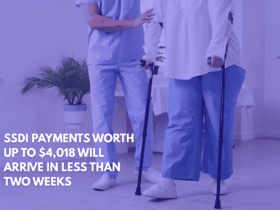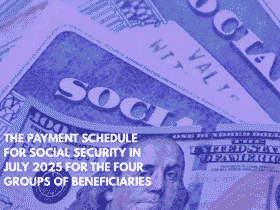For many retirees in the United States, Social Security is the main source of income every month. However, not everyone receives their Social Security check on the same day. The Social Security Administration (SSA) sends payments on different dates, depending on when a person started receiving benefits and their birth date.
In May 2025, Social Security payments will be made on four different days: May 2, May 14, May 21, and May 28. Each date is linked to a specific group of beneficiaries. That’s why it is important to know exactly which group you belong to so you can be sure when your payment will arrive.
Besides that, some people may also face a review of their eligibility this month. If they don’t meet certain conditions, they could lose their monthly Social Security benefits.
Minimum Requirements to Receive Social Security in May 2025
To receive monthly Social Security payments, you must meet some basic rules set by the SSA. The first rule is reaching the minimum retirement age. Depending on the year you were born, the minimum retirement age is between 62 and 67 years.
Another important rule is about work history. You must have earned at least 40 work credits, which usually means about 10 years of working and paying Social Security taxes. Without enough work credits, you cannot qualify for retirement benefits.
Other factors, such as whether you retired early, on time, or delayed your retirement, will affect how much money you get each month. But as long as you meet the basic age and work requirements, you should continue to receive your payments.
Why Social Security Payments May Be Stopped
Even if you qualified and started receiving Social Security, it does not guarantee that your payments will continue forever. There are several reasons why the SSA might stop sending your benefits. Here’s what you need to know:
Returning to Work and Earning Too Much
If you return to work and your income goes over the allowed limit, the SSA might reduce or even stop your payments. Each year, there is an earnings limit for retirees who are not yet at full retirement age.
Failing Medical Reviews (for Disability Benefits)
If you are receiving Social Security Disability benefits, the SSA checks regularly to see if you are still disabled. If a medical review finds that your condition has improved and you can now work, your disability payments may stop.
Not Reporting Important Changes
If you move to a new address, get married, divorce, gain additional income, or have changes in the number of people living with you, you must report these changes to Social Security. Not updating this information could lead to suspension of benefits.
Providing False or Incorrect Information
Giving wrong, false, or incomplete information when applying for Social Security or during updates and reviews can cause your benefits to be stopped immediately. In some cases, it can even result in legal actions.
Living Outside the U.S. for Too Long
Depending on the type of benefit you receive, living outside the United States for more than 30 consecutive days could cause you to lose your payments. Some types of Social Security benefits have strict residency rules.
Legal Problems
In some cases, such as being convicted of a crime or being ordered by a court, Social Security payments can be paused or completely stopped.
Having Too Much Income or Resources (for SSI)
If you receive Supplemental Security Income (SSI), your income and assets must stay below certain limits. If your financial situation improves too much, you may lose SSI benefits.
Protect Your Benefits and Plan Ahead
Knowing these rules can help you protect your monthly Social Security check. Keeping your information updated, understanding your rights and limits, and staying aware of your earnings and assets are smart ways to make sure you continue receiving your benefits without interruptions. Planning ahead gives you greater financial security and peace of mind.











Leave a Reply